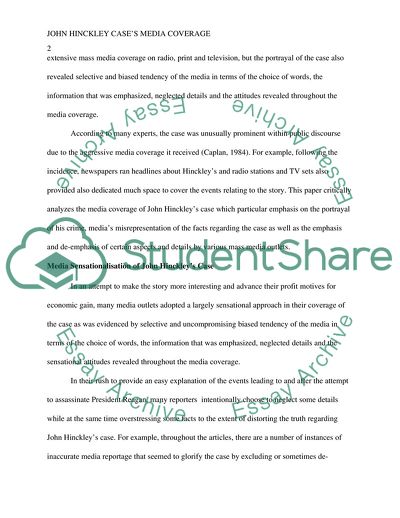Cite this document
(The Media Coverage of John Hinckley Case Study Example | Topics and Well Written Essays - 1250 words, n.d.)
The Media Coverage of John Hinckley Case Study Example | Topics and Well Written Essays - 1250 words. https://studentshare.org/media/1844803-john-hinckley-cases-media-coverage
The Media Coverage of John Hinckley Case Study Example | Topics and Well Written Essays - 1250 words. https://studentshare.org/media/1844803-john-hinckley-cases-media-coverage
(The Media Coverage of John Hinckley Case Study Example | Topics and Well Written Essays - 1250 Words)
The Media Coverage of John Hinckley Case Study Example | Topics and Well Written Essays - 1250 Words. https://studentshare.org/media/1844803-john-hinckley-cases-media-coverage.
The Media Coverage of John Hinckley Case Study Example | Topics and Well Written Essays - 1250 Words. https://studentshare.org/media/1844803-john-hinckley-cases-media-coverage.
“The Media Coverage of John Hinckley Case Study Example | Topics and Well Written Essays - 1250 Words”. https://studentshare.org/media/1844803-john-hinckley-cases-media-coverage.


